Twenty-eight University of Otago academics are being promoted to the position of professor this year.
Acting Vice-Chancellor Professor Helen Nicholson praised their achievement when making the announcement today.
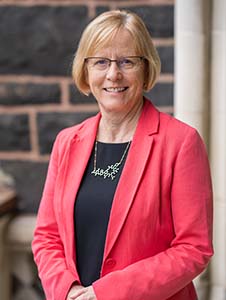
Acting Vice-Chancellor Professor Helen Nicholson
The promotions acknowledge the dedication and commitment of the talented group, which covers the breadth of the University's divisions and campuses.
“It is wonderful to see people succeeding across disciplines and campuses, with new professors in all four academic divisions from Dunedin, Christchurch and Wellington.
“Not only do these promotions honour these individuals and highlight their work, they emphasise the range of academic talent and expertise we have at Otago.
"I look forward to their future teaching, research and service achievements,” Professor Nicholson says.
Otago's promotion process involves thorough evaluation of each individual's record of contributions to research, teaching, and service to the University and community. It also involves input from international experts in evaluating the candidates' research contributions.
A further 52 academics are being promoted to Associate Professor, Research Associate Professor and Clinical Associate Professor.
The promotions take effect from 1 February 2022.
Staff promoted to Professor:
Peter Adams
Music Programme
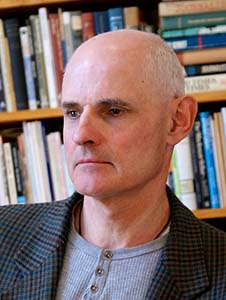
Peter Adams
Peter's research expertise is in two areas: his professional practice as a conductor and musical director, and his creative work as a composer of new original music. His conducting career spans 40 years, and as well as working with nearly every local musical organisation he has given concerts all around the country conducting regional orchestras and brass bands. Peter is something of a specialist in conducting young people – he has a long-standing relationship with the Dunedin Youth Orchestra and the Waitaki Summer Music School, and has been musical director of the National Youth Brass Band of New Zealand (taking them to China in 2012), and the NZ Secondary Schools Symphony Orchestra. As a composer, Peter has works for orchestra, brass band and chamber ensembles, and his music has been widely performed. His work has been recorded on Rattle Records and RNZ 'Resound' and published by Promethean Editions.
Lynley Anderson
Bioethics Centre
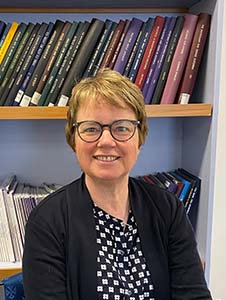
Lynley Anderson
Lynley's current research is primarily in two areas. The first is the ethical and professional development of health professional students. Co-lead of a multidisciplinary team, Lynley is currently investigating the less desirable experiences of clinical students, the levels of support they receive, and how these experiences impact on their learning. The aim of the research is to optimise student experience, learning opportunities and their professional identity formation. The second area of research relates to ethical issues in sport and sports health care provision. Latest publications from this include how to apply ethical values to athletes returning to international sport during a pandemic. Lynley has been the Head of Department of the Bioethics Centre since 2017, Deputy Dean of the Dunedin School of Medicine from 2020, and worked on national committees including Ethics Committee for Assisted Reproductive Technology and has chaired the Health Research Council Ethics Committee.
Jesse Bering
Centre for Science Communication
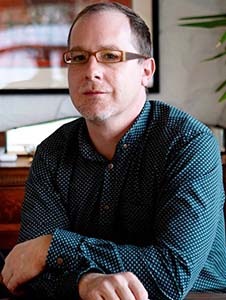
Jesse Bering
An experimental psychologist by training, Jesse's primary research area is the cognitive science of religion. His work centres on the cognitive underpinnings of afterlife beliefs, as well as how we ascribe purpose to life events as a consequence of our species' evolved psychology. Using controlled studies, he has begun to explore people's ability to reconcile religious and scientific reasoning when faced directly with experiences or information that challenge their worldviews. He is also an award-winning science writer specialising in human behaviour. His first book, The Belief Instinct (2011), was included on the American Library Association's Top 25 Books of the Year. This was followed by a collection of his published essays, Why Is the Penis Shaped Like That? (2012), Perv (2013), a taboo-breaking work that received widespread critical acclaim and was named as a New York Times Editor's Choice, and Suicidal (2018, published in NZ as A Very Human Ending).
Michael Black
Department of Biochemistry
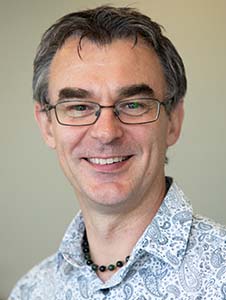
Michael Black
Mik is a statistician whose research focuses on the development of methods for the analysis of genomic data, with a strong emphasis on cancer and other human diseases. A common theme is the use of techniques that allow high-dimensional and often very disparate data sets to be combined in ways that provide new insights into disease development and progression. This research is highly collaborative, and Mik works closely with a number of Otago research groups, as well as with long-standing national and international collaborators at the University of Auckland, the Institute of Environmental Science and Research, Wake Forest University Medical School, and Moffitt Cancer Center. In addition to his own work, Mik has been heavily involved in establishing national research infrastructure in high performance computing through the NZ eScience Infrastructure, and in genomics and bioinformatics through Genomics Aotearoa, where he is the Chair of the Bioinformatics Leadership Team.
Jonathan Broadbent
Department of Oral Sciences
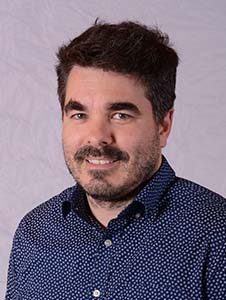
Jonathan Broadbent
Jonathan is passionate about a better and fairer oral health future in Aotearoa New Zealand. He is a dentist with 20 years' clinical and research experience. His academic interests are in dental epidemiology and public health research and he now leads the dental component of the Dunedin Multidisciplinary Health and Development Study. He works with many collaborators and has published numerous papers in his own discipline and beyond. In particular, he has led internationally in applying trajectory modelling techniques in dental longitudinal research, as well as work on access to dental care and community water fluoridation. He is a current executive member of the Oral Health Clinical Advisory Network and president of the New Zealand Section of the International Association for Dental Research. Jonathan is active in journal editing roles with the New Zealand Dental Journal, the Journal of the Royal Society of New Zealand, and BMC Oral Health.
Rebecca Campbell
Department of Physiology
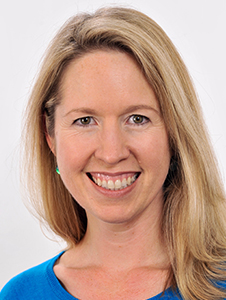
Rebecca Campbell
Rebecca is a neuroendocrinologist and is passionate about understanding how the brain regulates fertility. Currently, her research is focused on investigating how excess androgens impact the female brain in the development and pathology of polycystic ovary syndrome (PCOS), the most common endocrine disorder amongst women of reproductive age. Using a wide range of anatomical and functional neuroscience tools in transgenic and disease models, her work has defined important characteristics of specific brain circuits relevant to reproductive health. Her team has discovered that androgen excess drives changes in the female brain that are associated with the development and maintenance of PCOS-like features, and it is focused on identifying novel ways to prevent, treat and reverse PCOS in the clinic. Rebecca is the Deputy Director of the Centre for Neuroendocrinology, served previously as the Associate Dean Research for the School of Biomedical Sciences (BMS), and currently sits on the Maurice Wilkins Centre of Research Excellence Leadership Forum. She has had the privilege of leading a Health Research Council Programme and was honoured to receive the BMS Distinguished Researcher Award in 2020.
Timothy Eglinton
Department of Surgery, Christchurch
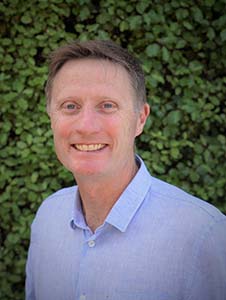
Timothy Eglinton
Tim is a Consultant Colorectal Surgeon in Christchurch. After obtaining FRACS in General Surgery in 2005, he undertook post fellowship training in colon and rectal surgery in Cambridge, the United Kingdom and Adelaide, Australia. Tim's specialty interests include inflammatory bowel disease, diverticular disease and colorectal cancer. His research has focused on the epidemiology, molecular pathogenesis, and in particular minimally invasive surgical management of these conditions. He has also worked with the Ministry of Health to improve equity of access to elective surgical care. In addition to medical student teaching, Tim is passionate about advancing post-graduate surgical training. He is currently a member of the RACS Surgical Skills Education and Training Committee and sits on the ANZ Training Board in Colon and Rectal Surgery.
Catherine Fowler
Media, Film and Communication Programme
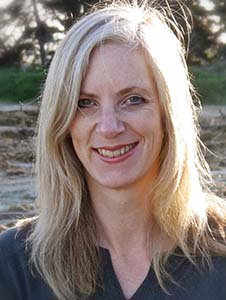
Catherine Fowler
As a film scholar, Catherine is committed to communicating the complexities of filmmaking that pushes formal, cultural and aesthetic boundaries. She has developed an original critical framework for understanding contemporary artistic moving images. Her publications encompass work on film and the visual arts, women filmmakers and the dynamic relationships between space, place and identity in European cinemas. In her monograph on the British film director Sally Potter she examined the contradictions of being a woman in charge and explored Potter's use of song, dance, performance and poetry to expand our experience of cinema towards the visual arts. Catherine has a strong history of collaboration with scholars in Europe, the UK and Australia and has received invitations to present her work in Canada, the UK, France, Serbia and in New Zealand. She has also been the recipient of a Fulbright Award to take up invitations at UCLA, Yale and Harvard Universities.
Anita Gibbs
Sociology, Gender Studies and Criminology Programme
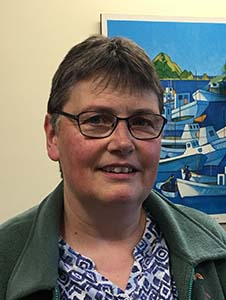
Anita Gibbs
Anita's research explores the impacts on people of their involvement with complex social systems: mental health, criminal justice, adoption/fostering and disability, as well as the impacts of living with Fetal Alcohol Spectrum Disorder (FASD) on families and individuals. Anita's research on FASD has seen the development of evidence-based online caregiving interventions, which she also delivers in Australia and New Zealand. In 2020, she was awarded the Critic and Conscience of Society Award funded by the GAMA foundation in conjunction with Universities New Zealand, for her work on FASD to raise awareness of FASD as a lifelong, yet often hidden disability. Anita leads and supports an extensive range of FASD research and practice initiatives throughout New Zealand, through work with and alongside the ministries of health, children, and education, and Corrections and NGOs. Anita maintains her practice as a social worker through continuing education workshops and talks. Anita's publications include over 160 co-edited books, book chapters, articles and other research outputs.
Clinton Golding
Higher Education Development Centre
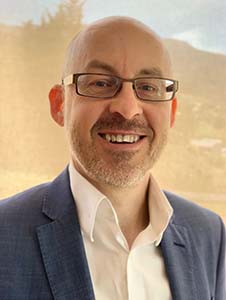
Clinton Golding
Clinton researches Higher Education and academic practice. He develops and refines new pedagogical theories and practices in a variety of areas such as interdisciplinary teaching, inquiry learning, graduate research, clinical reasoning, critical thinking, and evaluation. His research primarily uses the methods of philosophy and philosophy of education to resolve important challenges in the practice of teaching and research, such as the tension between enabling students to think for themselves while simultaneously ensuring they get accurate answers. Clinton aims to produce research that is useful, that enables teachers, researchers and academics to improve their practice. For example, he has published about how to foster student inquiry, and how to improve your teaching, and he has published two frequently downloaded articles on thesis writing based on what thesis examiners do. Clinton's research in Higher Education developed from his earlier research in Philosophy for Children, and he is still active in this field.
Rebecca Grainger
Department of Medicine, Wellington
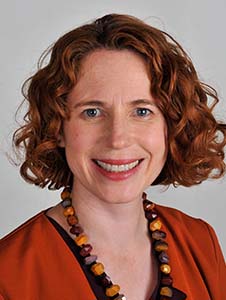
Rebecca Grainger/p>
Rebecca is a Wellington-based rheumatologist whose research addresses clinically important questions about arthritis and immune-inflammatory conditions in New Zealand and internationally, and the use of technology in health care and medical education. Her recent leadership in the COVID-19 Global Rheumatology Alliance resulted in timely knowledge to inform the care of people with rheumatic disease during the pandemic. Her contributions to research in digital health have been recognised by election as a Fellow of the International Academy of Health Sciences Informatics and as a Fellow of Health Informatics New Zealand. She actively contributes to the research in and scholarship of medical education directly and by mentoring others. She has served in leadership roles for multiple scientific, professional, and community organisations, including for Arthritis New Zealand, New Zealand Rheumatology Association, Research for Life, the Royal Australasian College of Physicians, and the American College of Rheumatology.
Alex Gunn
College of Education
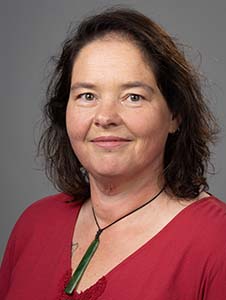
Alex Gunn
Fascinated by how teachers' beliefs and values inform their practices and in how institutionalised discourses shape thinking and practice, much of Alex's research has concerned issues of normativity including the imposition of heterosexuality on young children, gender diversity, and the potential of queer sensibilities for destabilising unhelpfully normative thinking. Other significant research trajectories concern educational assessment, particularly the power of narrative assessment for documenting teachers' intentions and children's learner identities, and teacher education, where her work helps lead evidence-based teacher education policy discussions nationwide. Alex is extensively involved in the education system providing high level policy advice on early childhood education, teacher education, and curriculum reform. Since moving to Otago from the University of Canterbury in 2011 she has served a 6-year term as the Associate Dean (Teacher Education) and supported strategic university wide initiatives such as online practicum management and the Sexual Misconduct Action Response Team.
Siân Halcrow
Department of Anatomy
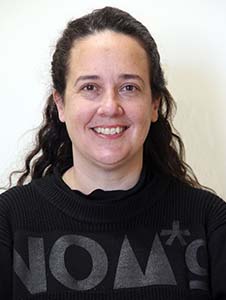
Siân Halcrow
Siân's research interests lie in understanding major human transitions in the past through the experiences of the most vulnerable people in the population: infants and children. Her work interrogates central archaeological questions of the intensification of agriculture and human responses to this seminal time in prehistoric Southeast Asia, East Asia and South America. She also contributes to topical issues in her discipline through her work on the ethics of the study of human remains. Since 2007, Siân has had more than 100 peer-reviewed publications, and has gained grants from the Marsden Fund, Australian Research Council, FONDOCYT, Fullbright NZ, Wenner-Gren Foundation, and National Geographic. She is the Co-Editor-In Chief for Bioarchaeology International, and her co-edited book, The Mother-Infant Nexus in the Past: Small Beginnings, Significant Outcomes (Springer) has been used for the Research Excellence Framework (UK). Siân was the recipient of the Rowheath Trust Award and Carl Smith Research Medal, and the NZ Association of Scientists Hill Tinsley Medal.
Chris Hepburn
Department of Marine Science
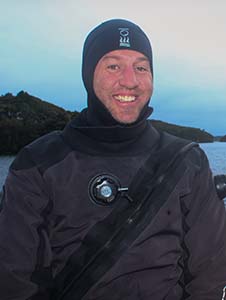
Chris Hepburn
Chris is a PhD graduate from Otago who grew up in Cromwell. His training in seaweed ecophysiology has been broadened to include the impacts of human-induced change on the ecology of kelp forests and coastal seas and their values. Chris and his team of students and collaborators work alongside coastal communities in their struggles to restore and maintain ways of life associated with productive coastal ecosystem and fisheries. His work is strongly applied and is often diving focused. He has gained huge support from Kai Tahu Tangata Tiaki (Customary Fishery Managers) in Te Waipounamu over many years and is proud to support and work alongside these champions of coastal fishery protection, conservation and culture. Application of his research and teaching to support local action that has helped return local fisheries rights to local people has been a highlight of his work to date. He is a proud member of the East Otago Taiāpure Management Committee and Co-Director of the marine climate change focused Coastal People Southern Skies Centre of Research Excellence.
Christopher Holmes
Theology Programme
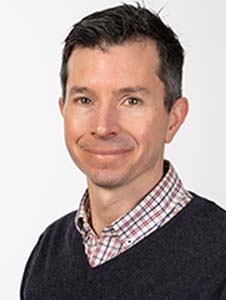
Christopher Holmes
Chris is a systematic theologian and an ordained minister. His research is focussed on what the Bible has to say about God and all things as they relate to God. This has brought him into deep conversation with some of the Christian church's most important teachers, including St Augustine, St Thomas Aquinas, John Calvin, Karl Barth, and Dietrich Bonhoeffer. Chris has published many articles and book chapters covering key theological themes. He has also published five books, his most recent being A Theology of the Christian Life: Imitating and Participating in God (Baker Academic). His sixth book will appear in 2022 with Baylor University Press. It is titled The Substance of the Faith. This book considers the speeches of Peter and Paul in the Acts of the Apostles. It unfolds, in dialogue with St Thomas Aquinas and Calvin, the speeches' contribution to Christian doctrine. Chris also serves as the Head of the Theology Programme.
Zhiyi Huang
Department of Computer Science
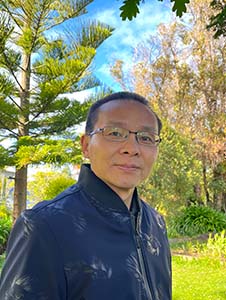
Zhiyi Huang
Zhiyi is a computer scientist who is interested in improving the performance of computer systems and applying them in health-related sciences. His work focuses on making computer systems faster, smaller, more convenient to use, and more energy efficient. He has expertise in computer systems ranging from high-end cluster computers and multicore/manycore systems, to embedded systems and Internet of Things. He has applied his expertise of computer systems to artificial intelligence, psychology, and medical science. He is now particularly interested in finding biomarkers for depression and anxiety in biomedical signals. He has authored/co-authored more than 150 scientific articles on topics in parallel and distributed systems, high performance computing, green computing, cloud systems, operating systems, computer architectures, task scheduling, wireless networks, optical networks, signal processing, and machine learning algorithms for biomedical data. He has the passion to share his knowledge in school communities via the Hi2 Coding Club.
Ali Knott
Department of Computer Science
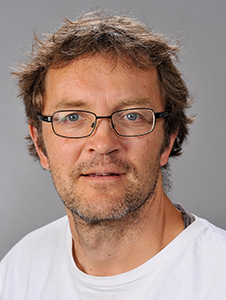
Alistair Knott
Ali's area of expertise is Artificial Intelligence. He is involved in developing new AI technologies, but is also active in discussions about AI ethics. As a developer of AI, Ali's work focusses on computational models of the brain. He is particularly interested in how the human brain implements language, and in the brain mechanisms that allow people to talk about what they see and do in the world. Ali currently works on these questions with the Auckland-based AI company Soul Machines, with which he has been affiliated since its founding in 2016. As an AI ethicist, Ali has advised the New Zealand government on its uses of AI systems, and on the likely impacts of AI technology on human jobs. He is also involved in New Zealand's efforts to oversee social media platforms. He is currently co-leading a project on social media oversight coordinated by the Global Partnership on AI.
Simone Marshall
English and Linguistics Programme
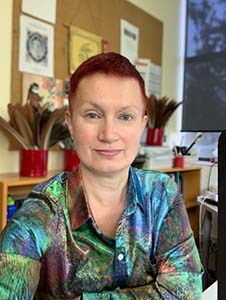
Simone Marshall
Simone is recognised as a world expert in 15th century English literature, and on the afterlives of Geoffrey Chaucer's poetry. She has recently been invited to write a biography of Geoffrey Chaucer (Wiley/Blackwell), which will show how Chaucer's life has been hijacked over the centuries to suit the socio-political needs of writers and readers. With the assistance of two Marsden grants, Simone has written two monographs, the first, The Female Voice, argues that female authorship has been largely ignored in contemporary scholarship on medieval literature. The second monograph, The Anonymous Text: The 500-Year History of The Assembly of Ladies, argues that literary anonymity was often a strategy used by marginalised people to express their dissent. In 2011, Simone identified a previously unknown edition of The Works of Geoffrey Chaucer from 1807. This discovery has changed international views about the Chaucer corpus, and revealed how Chaucer has been used to uphold conservative white attitudes for centuries.
Natalie Medlicott
School of Pharmacy
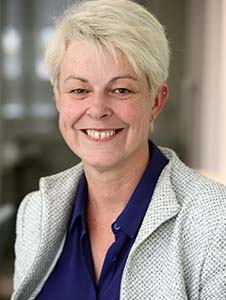
Natalie Medlicott
Natalie is a pharmaceutical scientist with expertise in drug delivery, medicine formulation and pharmaceutical analyses. She has a Bachelor of Pharmacy and PhD from Otago, and worked as a postdoctoral researcher at the University of Kansas before returning to New Zealand and Otago. Her research includes formulation science and improving drug delivery for neonates, new treatments for mental health and pain and topical treatments for promoting wound healing in dentistry. She works in multidisciplinary teams with lab-based scientists, clinicians and commercial collaborators so that research has potential to develop into new healthcare options and products. She is Deputy Dean of the School of Pharmacy and has taught pharmaceutical sciences for many New Zealand Pharmacists. Now, with the School's Bachelor of Pharmaceutical Sciences degree starting in 2022, she is excited at the prospect of providing educational opportunities for students in New Zealand interested in careers in the pharmaceutical industry.
Karen Nairn
College of Education
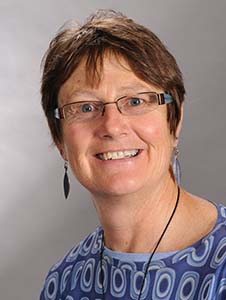
Karen Nairn
Karen's research is youth-focused. Her current Marsden-funded project focuses on what inspires young people to join others to create social change and the book Youth-led activism in Aotearoa will be published next year. The book is about six youth-led groups working on a range of fronts: honouring indigenous land rights, policies for a zero carbon future, challenging sexual violence and gender-based harassment, rethinking gender and sexuality and what counts as 'justice', and addressing social inequalities in Aotearoa. An earlier Marsden-funded project culminated in the book Children of Rogernomics: A neoliberal generation leaves school. That book was about young people coming to adulthood in the wake of New Zealand's neoliberal reforms, connecting their accounts with the wider social and economic story. Karen introduced a Young Women in Leadership programme for year 12 and is currently researching the programme's influence on young women when they are in their last year of high school.
Philippa Seaton
Centre for Postgraduate Nursing, Christchurch
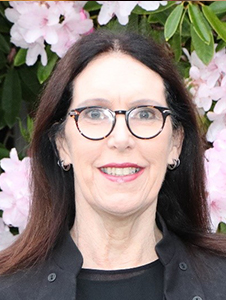
Philippa Seaton
Philippa's core research relates to nursing education, development of the nursing workforce, and research that informs healthcare to promote improved outcomes. Projects have investigated nursing education; clinical simulation; inter-professional education; technology-enhanced learning and teaching with virtual reality; telehealth; wound care and pressure injuries. Philippa collaborates closely with clinical stakeholders, including the CDHB, Nurse Maude, and Ashburton Hospital in research partnerships leading to the development and translation to practice of knowledge for the profession. She has international research collaborations with the Australasian Education, Simulation and Safety collaboration, and with the University of Melbourne, School of Nursing. Philippa is a founding member of the Canterbury Nursing Research Alliance with the CDHB, Ara and Canterbury University. She supervises PhD and Masters students. Philippa is the Director of the Centre for Postgraduate Nursing Studies and contributes to several governance groups for nursing locally and nationally, and to university committees.
Simon Stebbings
Department of Medicine
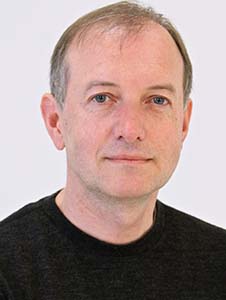
Simon Stebbings
Simon is a Rheumatologist and head of the Rheumatology Research Unit, Department of Medicine, Dunedin School of Medicine. His research is focused on Spondyloarthritis, a common inflammatory arthritis of the spine. Simon has studied the genetic basis of this condition through international collaborations, which have led to new tools for early diagnosis. He has also extensively researched the role that the immune system and gut bacteria play in the development and perpetuation of spondyloarthritis. Through membership of the Assessments in Spondyloarthritis International Society, he has helped to develop tools to improve understanding of the health impacts of Spondyloarthritis. He has been the New Zealand representative on a board developing guidelines for managing Spondyloarthritis across the Asia-Pacific region. Simon's other research focus is through a longstanding collaboration with the Psychology Department, investigating the impact of fatigue, and most recently the effects of the Covid-19 pandemic on people with arthritis.
Gareth Treharne
Department of Psychology
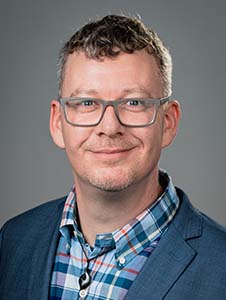
Gareth Treharne
Gareth's research addresses the psychology of health and illness. His broad-spanning work is highly collaborative and integrates a focus on mentoring to develop capacity for innovation. Gareth uses a blend of methodological approaches to explore health outcomes and people's lived experiences. He works with groups like patients, students, and parents to develop ways of enhancing well-being through interventions that meet the needs of communities. His current collaborations include research on the well-being of people with arthritis, healthcare for people with marginalised sexualities or genders, and service provision for survivors of sexual violence. He is committed to supporting Māori-led research and is an investigator on a community-led longitudinal study of kaupapa Māori approaches to education in the early years and beyond as a foundation for tackling inequities. Gareth has a longstanding involvement in the International Society of Critical Health Psychology and is the incoming Co-Editor-in-Chief of the Journal of Health Psychology.
Robin Turner
Biostatistics Centre
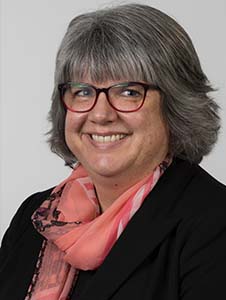
Robin Turner
Robin is a biostatistician who specialises in the application of biostatistical methods to health-related research. Her research covers a wide range of health-related areas including understanding the burden of influenza and other respiratory viruses, improving follow-up and monitoring after treatment for cancer and estimating the prevalence and risk factors for chronic diseases. Robin is an expert in the biostatistical methods relating to a randomised clinical trial design to estimate the effect of patient preferences for treatment on their outcomes. This trial design allows the investigation of the efficacy of decision aids. She is involved in research into improved biostatistical methods for risk prediction modelling. She has expertise in the methods and analysis of diagnostic test accuracy reviews. As the methods expert she ensures research studies are designed and analysed properly and uses a range of complex biostatistical methods to do this. Robin is Director of the Biostatistics Centre.
Angela Wanhalla
History Programme
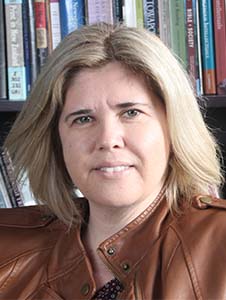
Angela Wanhalla
Angela (Kāi Te Ruahikihiki, Kāi Tahu) is a historian whose research focuses on the complex histories and politics of cross-cultural intimacy in colonial societies, particularly for Indigenous communities in New Zealand and the Pacific. Her publications include the award-winning Matters of the Heart: A History of Interracial Marriage in New Zealand (2013), Mothers' Darlings of the South Pacific: The children of US servicemen and Indigenous women, World War II (2016) co-edited with Judith A. Bennett; and He Reo Wāhine: Māori Women's Voices from the Nineteenth Century (2017) co-authored with Lachy Paterson. Angela was a Royal Society Te Apārangi Rutherford Discovery Fellow from 2014-19. She currently co-leads the Te Hau Kāinga: Histories and Legacies of the Māori Home Front, 1939-45 project, funded by a Marsden grant.
Gerry Wilkins
Department of Medicine
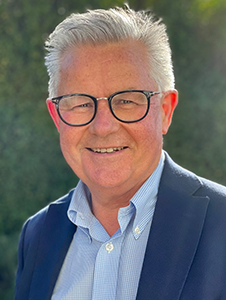
Gerard Wilkins
Gerard Wilkins is a graduate of Otago Medical School who returned to Dunedin from Boston in 1989 as a Clinical Academic and Consultant Cardiologist in a Joint Clinical role at Dunedin Hospital. His research interests are wide, including new medical device research, exercise physiology studies with members of Heart Otago Research group, rural health outcomes, genetics, selenium and experimental models of cardio-renal physiology. He has participated in more than 50 multi-centre international outcome studies of new therapies that have re-shaped clinical cardiology. He has pioneered many new cardiology procedures in New Zealand such as coronary and carotid stenting, and transradial and transapical interventional approaches. Due to a passion for his role as an academic teacher, he has received numerous teaching awards from medical students and is recognised internationally for his academic and technical contributions to interventional and structural heart disease through academic meetings and live case demonstrations. He has held numerous leadership positions in Dunedin Hospital and national organisations.
Staff promoted to Research Professor:
Michael Keall
Department of Public Health, Wellington
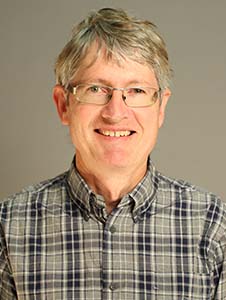
Michael Keall
Following undergraduate studies in Mathematics and Statistics, Michael completed a PhD in injury epidemiology at the Monash University Accident Research Centre in 2005. At the University of Otago, Wellington his research focuses on the health, environmental and safety implications of housing, urban design and transport. He also conducts research on road safety for Monash University. Highlights include leading the HRC-funded Home Injury Prevention Intervention study, a randomised controlled trial that showed the importance of making the home environment safer to prevent injuries from falls, and a long-running study of the Model Communities Programme, which showed health and environmental benefits of promotion of and investment in cycling and walking. He is also part of the team that produces the Used Car Safety Ratings, which provide a guide for buyers of used cars regarding the safety of particular vehicles based on real-world crash data from Australia and New Zealand.
Michael Tatley
New Zealand Pharmacovigilance Centre
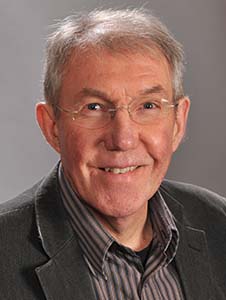
Michael Tatley
Michael is a Public Health Physician with research interest in support systems to transfer and share pharmacovigilance knowledge, skills development and practice optimization for countries in the Indo-Pacific Region. These include new/novel approaches, technologies, methodologies, or optimization of existing methods for medicine safety surveillance. The success of his innovative methodology to monitor New Zealand's MeNZB vaccine safety and his experience from its rollout informed his proposal for New Zealand's COVID-19 vaccine safety surveillance strategy elements now in place. He has expertise in the analysis of real-world medicine and vaccine adverse event safety data contributing to the identification of signals of clinical and public health concern leading to national actions to improve the safe use of medicines. He is Director of the New Zealand Pharmacovigilance Centre, member of a number of national medicine safety and policy committees, the WHO Advisory Committee on the Safety of Medicinal Products, the International Medication Safety Network Vice Chair and holds WHO consultant and technical advisor roles.
Staff promoted to Associate Professor:
Antonie Alm (Languages and Cultures Programme); David Berg (College of Education); Sergio Biggemann (Department of Marketing); Mihnea Bostina (Department of Microbiology and Immunology); Peter Cathro (Department of Oral Rehabilitation); Daniel Cury Ribeiro (School of Physiotherapy); Harsha De Silva (Department of Oral Diagnostic & Surgical Sciences); Anita Dunbier (Department of Biochemistry); Richard Egan (Department of Preventive and Social Medicine); Jeff Erickson (Department of Physiology); Anne Ford (Archaeology Programme); James Foulds (Department of Psychological Medicine (UOC)); Murat Genç (Department of Economics); Jane Girling (Department of Anatomy); Sarah Gordon (Department of Psychological Medicine (UOW)); Fi Graham (Department of Medicine (UOW)); Bill Hawkins (Department of Chemistry); Nicholas Heng (Department of Oral Sciences); Linn Hoffmann (Department of Botany); Bryndl Hohmann-Marriott (Sociology, Gender Studies and Criminology Programme); Maria Hook (Faculty of Law); Tim Hore (Department of Anatomy); Mark Huthwaite (Department of Psychological Medicine (UOW)); Hamish Jamieson (Department of Medicine (UOC)); Cameron Lacey (Dean's Department (UOC)); Sean McConnell (Classics Programme); May Mei (Department of Oral Rehabilitation); Alison Meldrum (Department of Oral Sciences); Grace Moore (English and Linguistics Programme); Sergio Morales (Department of Microbiology and Immunology); Meredith Perry (School of Physiotherapy); Matt Schofield (Department of Mathematics & Statistics); Pascal Sirguey (School of Surveying); Catherine Smith (Archaeology Programme); Trudy Sullivan (Department of Preventive and Social Medicine); Mele Taumoepeau (Department of Psychology); Timothy Thomas (Archaeology Programme); Phillip Wilcox (Department of Mathematics & Statistics); Megan Wilson (Department of Anatomy); Lyn Wise (Department of Pharmacology and Toxicology); Dan Wright (School of Pharmacy); Haibo Zhang (Department of Computer Science); Stefanie Zollmann (Department of Computer Science).
Research Associate Professors:
Claire Cameron (Biostatistics Centre); Tristram Ingham (Department of Medicine (UOW)); Khoon Lim (Department of Orthopaedic Surgery and Musculoskeletal Medicine (UOC)); Tracy Melzer (Department of Medicine (UOC)); Katharina Ruckstuhl (Dean's Office, School of Business); Marc Schallenberg (Department of Zoology); Moana Theodore (Department of Psychology).
Clinical Associate Professors:
Wayne Morriss (Department of Anaesthesia (UOC)); Anja Werno (Department of Pathology & Biomedical Science (UOC)).